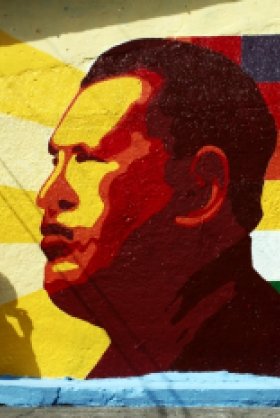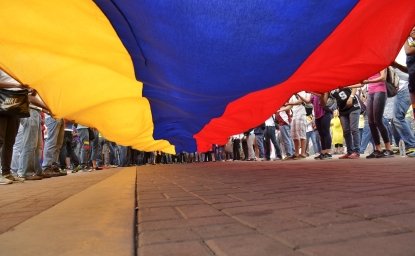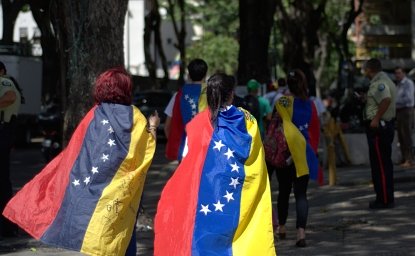The Venezuela Crisis and Latin America’s Future


Venezuela’s downward spiral has left the country poised between crisis and collapse. Over the last three years, the country’s economy fell into a depression marked by severe shortages and hyperinflation; social protest frequently erupted into violent instability; and the little that remained of one of Latin America’s oldest democracies vanished, yielding an authoritarian regime. Worse yet, the already acute political crisis took a turn for the worse. The government now openly relies on military force and institutionalized repression to maintain a modicum of stability. The government of President Nicolás Maduro blocked the opposition’s constitutional push for a recall referendum, using its control over the judiciary and electoral institutions to suspend a process that mobilized millions. Then, after Vatican- and Union of South American Nations (UNASUR)-sponsored talks between the Maduro Government and the opposition’s Mesa de la Unidad (The Democratic Roundtable) coalition broke down, the country’s human rights crisis escalated. Among other illegal detentions, the government arbitrarily jailed an elected member of Congress. As the rule of law further collapsed, the number of political prisoners rose to 116. Great uncertainty persists about whether gubernatorial elections postponed in 2016 will take place in 2017. Without any elections this year, Venezuela would likely experience a significant, but ultimately not destabilizing, street clash. This sharp decline has brought the country, and the hemisphere, to a moment of truth. Venezuela’s descent is the direct result of chavismo’s failed model. Yet Venezuelans must recognize that crafting a new, sustainable governance framework will require broad-based participation from political and civil society, including chavistas. For the hemisphere, the country’s current trajectory constitutes an unacceptable interruption of democracy while the possibility of collapse into civil strife poses an enormous danger for regional stability. This report on the Venezuelan crisis and Latin America’s future considers what the United States and the inter-American community, acting diplomatically, including through the Organization of American States, can do in response to the current crisis, specifically with regards to the erosion of democratic norms and practice in Venezuela. The Venezuela Crisis and Latin America's Future, By Michael M. McCarthy Photo Credit: Alfonsina Blyde / Flickr / Creative Commons
Author


Latin America Program
The Wilson Center’s prestigious Latin America Program provides non-partisan expertise to a broad community of decision makers in the United States and Latin America on critical policy issues facing the Hemisphere. The Program provides insightful and actionable research for policymakers, private sector leaders, journalists, and public intellectuals in the United States and Latin America. To bridge the gap between scholarship and policy action, it fosters new inquiry, sponsors high-level public and private meetings among multiple stakeholders, and explores policy options to improve outcomes for citizens throughout the Americas. Drawing on the Wilson Center’s strength as the nation’s key non-partisan policy forum, the Program serves as a trusted source of analysis and a vital point of contact between the worlds of scholarship and action. Read more




